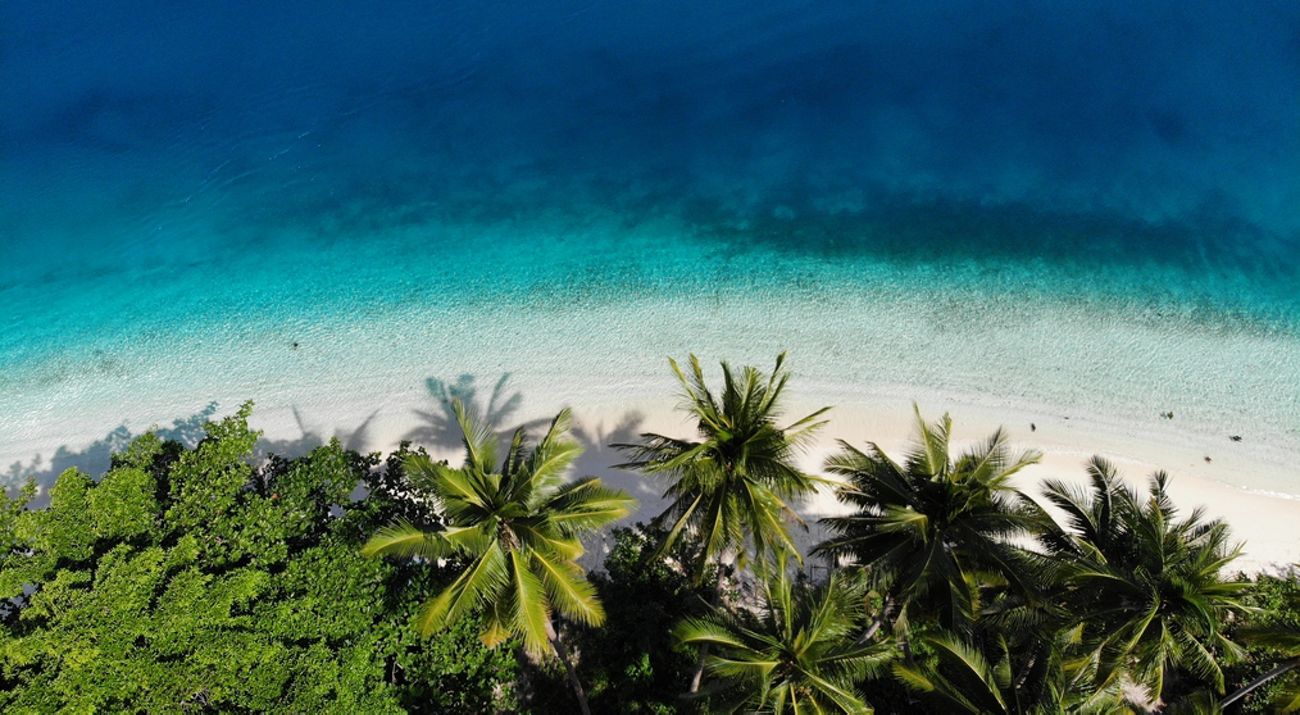10 Ways to Unlock an Ocean of Opportunity
Solutions for ocean health, marine life, and buffering climate change.
Close your eyes and think of the ocean. What comes to mind? Expanse, adventure, a sense of the unknown? Perhaps the wondrous world of marine life, with its creatures of all colours, shapes and sizes. What can you smell and hear? Salt, seaweed, the rhythm of waves crashing to shore? Whatever comes to your mind, one thing is certain—the ocean is critical to humans. It produces more than half of the oxygen we breathe and is the primary source of food and income for more than 3 billion people globally.
Our global insights, straight to your inbox:
get our latest research, insights and solutions to our planet’s biggest challenges.
Get our newsletterSadly, this amazing and essential part of our world is in danger. The global sea surface temperature has hit a new record, only around 8% of the ocean is legally protected, and about a third of the world’s monitored fisheries are overfished. Globally, we have already lost half of our mangroves and half of all coral reefs. And pollution is increasing: 80% of global sewage flowing into our oceans untreated, and more than eight million tons of plastic entering the ocean each year.
Now is the time to tackle these threats—and not one at a time, but holistically. That means that we need to protect and restore more of the ocean, manage activity sustainably, and reduce the impacts of climate change. There may be choppy waters ahead, but TNC is working with partners, communities and policymakers all over the world to chart a new course to a brighter, bluer future.

1. Creating more, and more effectively protected areas
Of the vast expanse of the ocean, only a small portion is currently protected. We need to conserve at least 30% of the global ocean through protected or conserved areas. And, we need to effectively manage activities across the whole ocean to sustain long-term health, increase resilience to climate change and support healthy fish populations. Including for example Marine Protected Areas (MPAs) at the heart of global marine biodiversity in Indonesia. YKAN and partners support the Indonesian government's program to realize effective MPA management in a number of water areas in Indonesia. Using a scientific approach and local wisdom, YKAN and partners facilitate the planning process to the establishment of an MPA covering an area of 6 million ha. Currently, YKAN is working with local governments and other stakeholders in increasing the effectiveness of management of marine protected areas and the capacity of area managers focusing on four locations, namely Raja Ampat (Southwest Papua), Wakatobi (Southeast Sulawesi), Sawu Sea National Park. (East Nusa Tenggara) and Berau (East Kalimantan).
2. Leveraging long-term financing for large scale protection.
The ocean covers 2/3 of the planet, but it receives only a fraction of the funding dedicated to protecting nature. That’s why TNC is developing new and innovative financial solutions for the ocean. One example of assistance and breakthroughs carried out by YKAN and stakeholders for the Raja Ampat Marine Protected Area (KKPD) area is the establishment of the Service Technical Implementation Unit (UPTD) which is implemented using the Public Service Agency Financial Management Pattern (PPK BLUD) which aims the Raja Ampat MPAs are independent/capable of financing themselves.
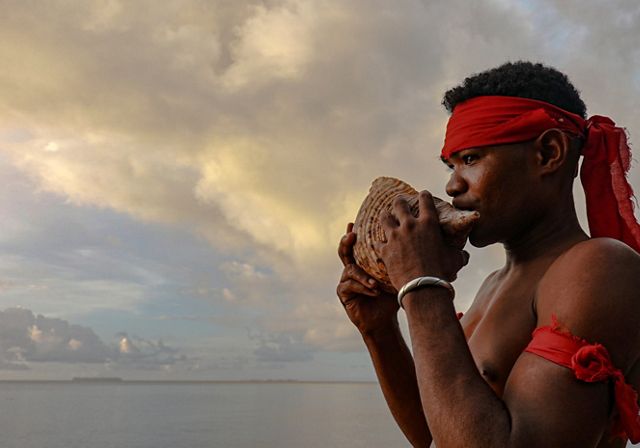
3. Fishing sustainably
Overfishing, habitat destruction and trapping of non-target species are major threats to both ocean life and our global food supply. Illegal, unreported and unregulated (IUU) fishing often undermines efforts to manage fish populations and causes significant economic losses.
In an effort to encourage the implementation of sustainable fish harvesting strategies in 11 Fishery Management Areas (WPP) in Indonesia, YKAN works closely with all stakeholders from the site level to policy holders. The results of the study in 11 WPPs have been published and have become the basis for us to focus on managing snapper and grouper fisheries in 5 WPPs and tuna in 3 WPPs. We developed a Crew-Operated Data Recording System (CODRS) to assist the Government of Indonesia in obtaining data and information regarding types and stocks of deep-sea snapper and grouper. The information gathered will help determine the capacity building needed and develop policies for sustainable fisheries management.
4. Working with communities
Indigenous peoples and local communities are essential custodians of many of the world’s remaining natural landscapes and critical coastal areas. When we’re invited to collaborate, YKAN works in partnership with Indigenous peoples and local communities to support their vision, learn from their stewardship experiences, and amplify their leadership. Communities are leading the way—whether it is Indigenous Peoples in East Nusa Tenggara, for example Rote Ndao Regency which supports the management of its water area using the Papadak Hoholok customary law, recognition of the rights of the Barata Kahedupa Customary Law Community and Kawati Tomia in Wakatobi in the sustainable management of aquatic Natural Resources or the practice of Sasi in Marine Protected Areas Raja Ampat area.
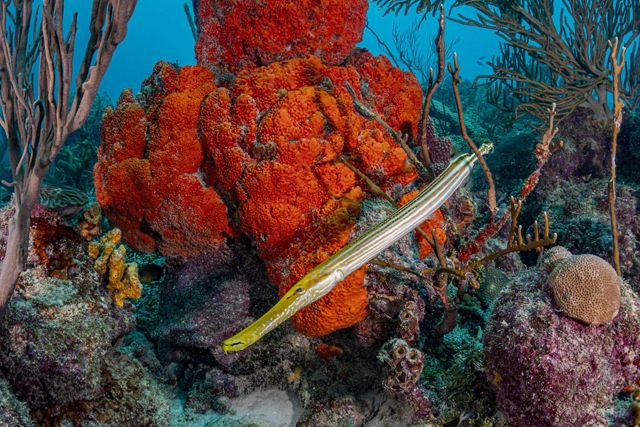
5. Conserving and restoring coral reefs
Coral reefs cover less than 1% of the world’s surface area, yet they support 25% of all marine life. They are also critically important for people, supporting fisheries, tourism, and coastal protection—reefs can absorb up to 97% of a wave's energy. Some recently discovered reefs are able to withstand climate change impacts. But unless we take immediate action, we could lose up to 90% of coral reefs within our lifetimes. In Indonesia, YKAN is working with communities, NGOs, government, business and funders to urgently improve the conservation and restoration of this beautiful and vital underwater park. Some of the activities carried out are regular monitoring of marine biota in Marine Protected Areas, facilitating processes with local communities for sustainable tourism and training for diving operators including dissemination of Standard Operational Procedure (SOP) diving in several areas. YKAN also supports joint patrols to monitor destructive fishing actions, especially the use of bombs to minimize the destruction of coral reefs.
6. Tackling climate change
Coastal habitats like mangroves, seagrasses and tidal marshes punch above their weight when it comes to storing huge amounts of carbon—affectionately called “blue carbon” (watch our explainer video to learn more). Their destruction releases greenhouse gases back into the atmosphere, exacerbating global warming. Conserving and restoring these habitats is critical to maintain their sequestered carbon and ensure it is not released back into the atmosphere. Being an archipelagic country, Indonesia has great blue carbon potential, reaching 3.4 Giga Tonnes (GT) or around 17% of the world's blue carbon. This blue carbon potential is spread across coastal ecosystems, such as mangrove forests and seagrass beds which are capable of storing 3-5 times more carbon than tropical forests.
This important potential in controlling climate change relies on planning for spatial management and sustainable use of natural resources in coastal areas. Focusing on implementing nature-based climate solutions, YKAN has developed a number of strategies for protecting and managing ecosystems in a sustainable manner to balance ecological, economic and social needs in coastal areas. Supporting the Indonesian Government's efforts to rehabilitate 600,000 hectares of mangrove areas during the 2021-2024 period, YKAN and partners have joined the Mangrove Ecosystem Restoration Alliance.
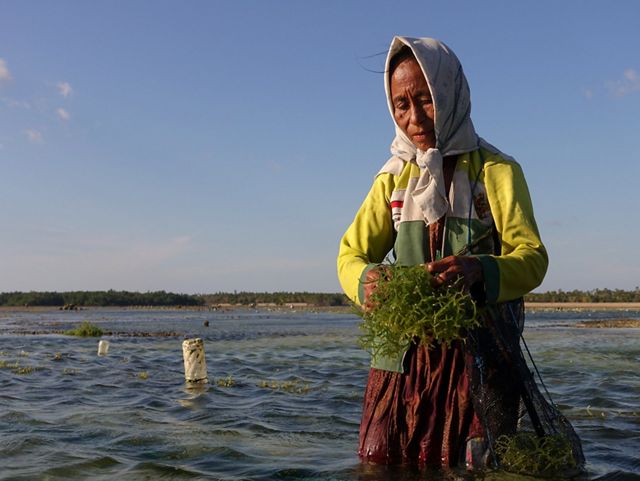
7. Ramping up regenerative aquaculture
Aquaculture is the fastest-growing form of food production—and it can also be one of the most environmentally efficient. This is especially true for bivalves (think oysters and scallops) and seaweed, which are climate friendly and require almost no additional feed or freshwater. Whether it’s helping oyster growers recover from economic shocks, restoring livelihoods and habitat through seaweed farming in Belize and Indonesia.
The blue economy program is one of YKAN's strategies that focuses on efforts to encourage sustainable community alternative livelihoods with reference to water-based natural resource management. Thus, the pace of economic growth can continue, while maintaining the marine ecosystem. Some of the efforts made with the community, for example, seaweed best management practices have been replicated in six villages in Sabu District, NTT and three villages in Wakatobi. YKAN's assisted villages, Oelolot and Mbuaein, succeeded in becoming a source of seaweed seed providers for neighboring villages in Rote after the Seroja storm and built community livelihood resilience based on seaweed cultivation. Wet seaweed production increased by 80% per planting cycle as a result of developing seedlings from demonstration plots that YKAN did with seaweed farmer groups.
Aquaculture done right can help us all chart a sustainable path moving forward.
8. Using science, advocacy and education
To ensure our conservation work is scalable and able to create the transformational change needed for both people and nature, we need policy that is evidence-based and and grounded in science, TNC’s strong suit. Education is also key, and local content contained at elementary school education curriculum supports the academic pursuit of students in Raja Ampat and Wakatobi about not only them as coastal frontline communities and climate justice but also the natural wealth of the waters in their territories. Likewise, the non-formal education programs that are often carried out with partners in YKAN's work area are the main part of community awareness efforts focused on water conservation. YKAN with partners through several activity platforms such as Thoughts Leader Forum, Conservation Chat (NGONSER), Sustainable Mission Campaign (Misi Lestari), Earth Day Campaign, joint campaigns, dialogues and lectures, as well as digital activities through social media and online events, educating the public and decision makers to support nature conservation efforts in Indonesia.

9. Contributing to global policy
In December 2022, world leaders agreed on a new set of global targets to protect nature, including to sustainably manage fisheries areas and to conserve 30% of the ocean by 2030—just seven years from now. Leaders also negotiated a new treaty for the “high seas” in March 2023 that calls for the conservation and more sustainable management of the open ocean, but countries have yet to ratify it. These big, bold commitments are an essential next step, but now we need to act urgently to put them into practice.
10. Adapting to change
With temperatures warming, populations growing, and our planet constantly changing, we must be prepared to adapt if we want to preserve life in the ocean. Healthy, ocean habitats—from reefs and seagrass to marshes and dunes—help defend us from climate impacts and create more resilient communities (watch our climate adaptation explainer video to learn more). Action on Oceans Day is critical, and we are committed to action every day to protect our planet.
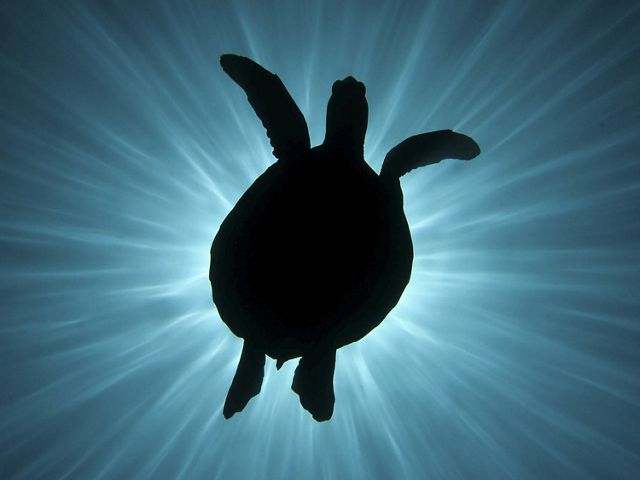
Conserve 30% of the Ocean by 2030
TNC supports the global goal of conserving at least 30 percent of the planet’s land, ocean and inland water over the next decade. To contribute to that goal, by 2030 TNC intends to conserve 4 billion hectares (more than 10% of the world’s ocean area) while benefitting 100 million people at severe risk of climate-related emergencies. Learn more about TNC's 2030 goals.


